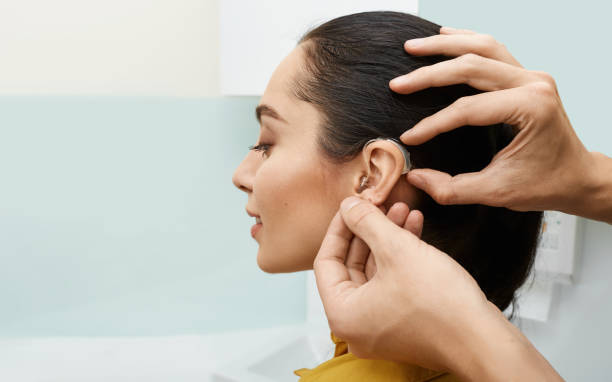Audiologist test are trained professionals who specialize in diagnosing and treating various hearing disorders. Whether you’re experiencing hearing loss, tinnitus, balance problems, or want to get your hearing checked, your first visit to an audiologist is an important step towards better hearing.
Now that you have understood the importance of visiting an audiologist let’s delve into how you can prepare for your first appointment:–

1. Research Audiologists in Your Area:-
The first step is searching for audiologists in your locality. Look for professionals with a strong reputation and positive patient reviews. Ear Solutions, for example, is a trusted hearing healthcare provider known for its commitment to patient care and state-of-the-art technology.
2. Schedule an Appointment:-
Once you’ve identified a suitable audiologist, contact their office to schedule an appointment. Be prepared to provide basic information like your name, contact details, and any insurance information they may require.
3. Prepare Your Medical History:-
Compile a detailed medical history that includes any past or current medical conditions, medications you’re taking, and any history of ear-related issues. This information can help your audiologist understand your overall health and its potential impact on your hearing.
4. List Your Symptoms and Concerns:-
Make a list of the symptoms you’re experiencing and any specific concerns you have about your hearing. Include details like when the symptoms started, how they’ve progressed, and any situations where you’ve noticed hearing difficulties.
5. Gather Your Questions:-
Prepare a list of questions or concerns you’d like to discuss with your audiologist during the appointment. It’s easy to forget things at the moment, so having a written list ensures you cover all your queries.
6. Prepare for Hearing Tests:-
During your audiologist visit, you’ll likely undergo a series of hearing tests. These tests are painless and help determine the type and extent of your hearing loss. Follow the audiologist’s instructions during these tests, and don’t hesitate to ask for clarification if needed.
7. Discuss Treatment Options:-
Based on the results of your tests, your audiologist will discuss potential treatment options with you. These may include hearing aids, cochlear implants, assistive listening devices, or medical intervention. Take your time to ask questions and explore the pros and cons of each option.
8. Follow-Up Plan:-
Based on the results of your tests, your audiologist will discuss potential treatment options with you. These may include hearing aids, cochlear implants, assistive listening devices, or medical intervention. Take your time to ask questions and explore the pros and cons of each option.
